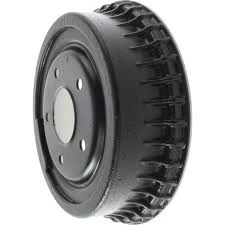
-
 Afrikaans
Afrikaans -
 Albanian
Albanian -
 Amharic
Amharic -
 Arabic
Arabic -
 Armenian
Armenian -
 Azerbaijani
Azerbaijani -
 Basque
Basque -
 Belarusian
Belarusian -
 Bengali
Bengali -
 Bosnian
Bosnian -
 Bulgarian
Bulgarian -
 Catalan
Catalan -
 Cebuano
Cebuano -
 Corsican
Corsican -
 Croatian
Croatian -
 Czech
Czech -
 Danish
Danish -
 Dutch
Dutch -
 English
English -
 Esperanto
Esperanto -
 Estonian
Estonian -
 Finnish
Finnish -
 French
French -
 Frisian
Frisian -
 Galician
Galician -
 Georgian
Georgian -
 German
German -
 Greek
Greek -
 Gujarati
Gujarati -
 Haitian Creole
Haitian Creole -
 hausa
hausa -
 hawaiian
hawaiian -
 Hebrew
Hebrew -
 Hindi
Hindi -
 Miao
Miao -
 Hungarian
Hungarian -
 Icelandic
Icelandic -
 igbo
igbo -
 Indonesian
Indonesian -
 irish
irish -
 Italian
Italian -
 Japanese
Japanese -
 Javanese
Javanese -
 Kannada
Kannada -
 kazakh
kazakh -
 Khmer
Khmer -
 Rwandese
Rwandese -
 Korean
Korean -
 Kurdish
Kurdish -
 Kyrgyz
Kyrgyz -
 Lao
Lao -
 Latin
Latin -
 Latvian
Latvian -
 Lithuanian
Lithuanian -
 Luxembourgish
Luxembourgish -
 Macedonian
Macedonian -
 Malgashi
Malgashi -
 Malay
Malay -
 Malayalam
Malayalam -
 Maltese
Maltese -
 Maori
Maori -
 Marathi
Marathi -
 Mongolian
Mongolian -
 Myanmar
Myanmar -
 Nepali
Nepali -
 Norwegian
Norwegian -
 Norwegian
Norwegian -
 Occitan
Occitan -
 Pashto
Pashto -
 Persian
Persian -
 Polish
Polish -
 Portuguese
Portuguese -
 Punjabi
Punjabi -
 Romanian
Romanian -
 Russian
Russian -
 Samoan
Samoan -
 Scottish Gaelic
Scottish Gaelic -
 Serbian
Serbian -
 Sesotho
Sesotho -
 Shona
Shona -
 Sindhi
Sindhi -
 Sinhala
Sinhala -
 Slovak
Slovak -
 Slovenian
Slovenian -
 Somali
Somali -
 Spanish
Spanish -
 Sundanese
Sundanese -
 Swahili
Swahili -
 Swedish
Swedish -
 Tagalog
Tagalog -
 Tajik
Tajik -
 Tamil
Tamil -
 Tatar
Tatar -
 Telugu
Telugu -
 Thai
Thai -
 Turkish
Turkish -
 Turkmen
Turkmen -
 Ukrainian
Ukrainian -
 Urdu
Urdu -
 Uighur
Uighur -
 Uzbek
Uzbek -
 Vietnamese
Vietnamese -
 Welsh
Welsh -
 Bantu
Bantu -
 Yiddish
Yiddish -
 Yoruba
Yoruba -
 Zulu
Zulu
is disc brake better than drum
Are Disc Brakes Better Than Drum Brakes?
When it comes to vehicle braking systems, one of the most debated topics among automotive enthusiasts, mechanics, and everyday drivers is whether disc brakes are superior to drum brakes. Both systems have their advantages and disadvantages, and understanding the differences can help in making informed decisions regarding vehicle maintenance and performance.
Understanding the Basics
Disc brakes consist of a flat, round metal disc that rotates with the wheel. When the driver presses the brake pedal, hydraulic pressure forces brake pads against the disc, creating friction that slows down or stops the vehicle. Drum brakes, on the other hand, utilize a cylindrical drum that rotates with the wheel, with brake shoes that press against the inner surface of the drum when the brakes are applied.
Performance and Efficiency
One of the most significant advantages of disc brakes over drum brakes is their superior performance in terms of heat dissipation. Disc brakes are more effective at managing heat build-up, which is crucial during heavy braking scenarios such as highway driving or downhill descents. The exposed design of disc brakes allows for better airflow and cooling, which reduces the risk of brake fade—a condition where brakes lose effectiveness due to overheating.
In contrast, drum brakes tend to retain heat, which can lead to decreased braking performance over time. This makes drum brakes less reliable in situations requiring repeated hard braking, such as in performance driving or when carrying heavy loads.
Maintenance and Durability
When it comes to maintenance, disc brakes are generally easier to inspect and replace than drum brakes. The open design of disc brakes allows for straightforward visual inspections of critical components, making it easier for mechanics to identify issues. Additionally, disc brakes typically experience less wear and tear in terms of pad life since they do not suffer from the same buildup of dust and debris that can affect drum brakes.
is disc brake better than drum

Drum brakes require more extensive maintenance. Accessing the brake shoes and internal components can be more complex, often necessitating the removal of the drum. Also, these brakes are more prone to issues like water and debris interference, which can lead to reduced performance and increased wear.
Weight and Cost Considerations
One common disadvantage of disc brakes is their weight. Generally, disc brake systems are heavier than drum systems, which can lead to a slight decrease in overall vehicle efficiency. However, advancements in materials and manufacturing have led to lighter disc brake designs that mitigate this concern.
In terms of cost, drum brakes are often less expensive to manufacture, making them a common choice for budget-friendly vehicles. Nonetheless, as performance and safety take precedence, especially in modern cars, many manufacturers are opting for disc brakes even on entry-level models.
Closing Thoughts
Ultimately, whether disc brakes are better than drum brakes depends on the intended use of the vehicle. For high-performance vehicles, off-road applications, or any scenario that requires consistent and reliable braking performance, disc brakes are the preferred choice. They excel in heat dissipation, maintenance, and overall efficiency.
However, for everyday commuting or usage in lower-performance vehicles, drum brakes remain a viable option due to their lower cost and adequate performance in less demanding situations. As the automotive industry evolves, the trend is undoubtedly leaning towards disc brakes, reflecting a growing emphasis on safety, reliability, and performance.
In conclusion, while both systems have their merits, it is clear that disc brakes generally provide enhanced performance, making them the better option for most modern vehicles.
-
Rear Drum Brakes Maintenance TipsNewsAug.04,2025
-
Key Components Affecting Brake Drum FunctionNewsAug.04,2025
-
Important Inspection for Truck Drum BrakeNewsAug.04,2025
-
How to Prepare for Changing Rear Drum BrakesNewsAug.04,2025
-
Essential Tools for Cleaning Drum Brakes ProperlyNewsAug.04,2025
-
Brake Drum Function GuideNewsAug.04,2025
-
Safety Features of Red Brake DrumsNewsAug.01,2025
